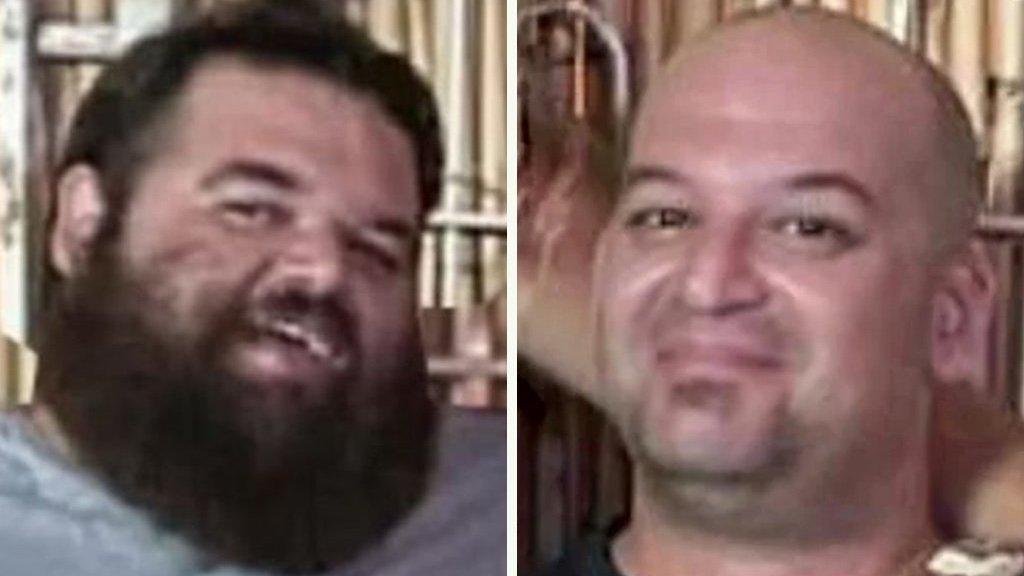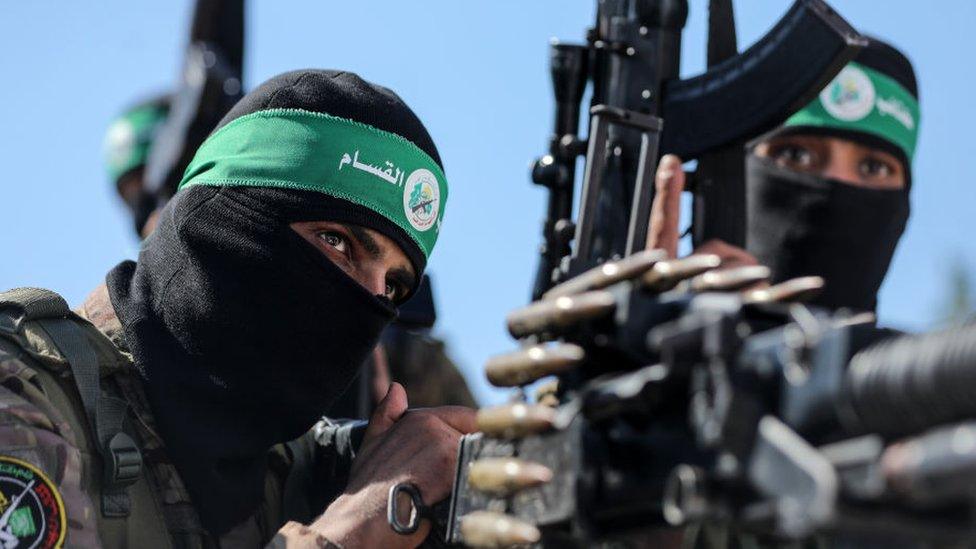Reporting on Gaza: 'Sometimes from behind the camera I just stand and cry'
- Published
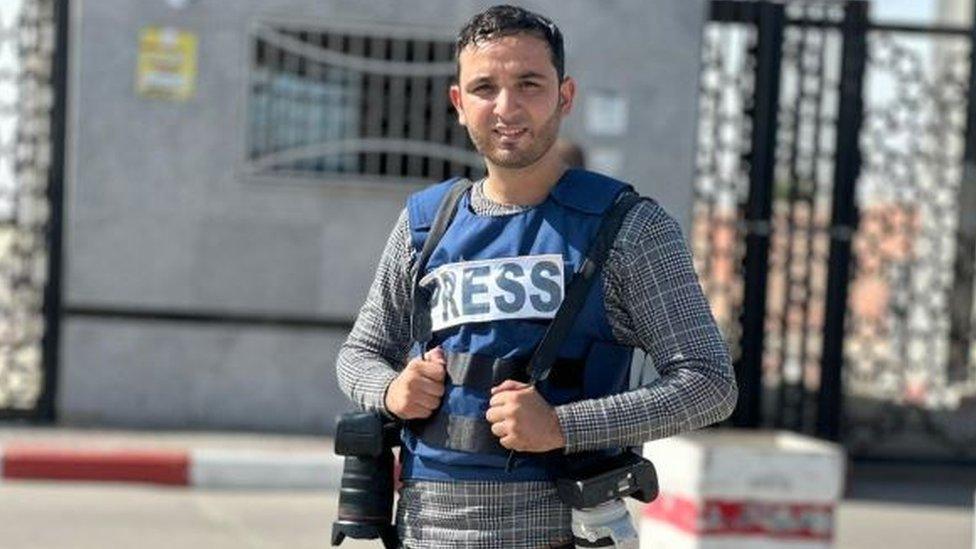
Mahmoud Bassam's wife and 11-month-old child are caught up in Gaza's war
The calls come whenever he can get a signal. Or whenever he can get enough electricity to charge his phone.
He eats when he can find food. He travels from one scene of desolation to another. As long as he can find petrol.
And Mahmoud Bassam worries about his wife and 11-month-old child because they have to move to avoid the bombing. So when he leaves home in the morning he is never sure they will be in the same place when he gets back at night.
That is if he can get back. If the road is not blocked or the bombing too heavy for him to travel.
In Gaza these days, Mahmoud is at the mercy of war. What it inflicts. What it can take away.
Mahmoud is a dedicated chronicler of his people's agony. Ever since the conflict began over three weeks ago he has been moving between hospitals and refugee camps and - with exhausting frequency - the scenes of explosions.
Alongside the work of the BBC's Gaza correspondent, Rushdi Abualouf, that of freelancers like Mahmoud has helped the BBC to convey the agony of civilians caught under relentless air strikes.
When I reach him by phone after hours of trying, Mahmoud describes the emotional toll of his work.
"As hard as it is to see what I see, and as much as I'm trying to deliver this message," he says, "sometimes from behind the camera I just stand and cry. And the only thing I can do is be silent."
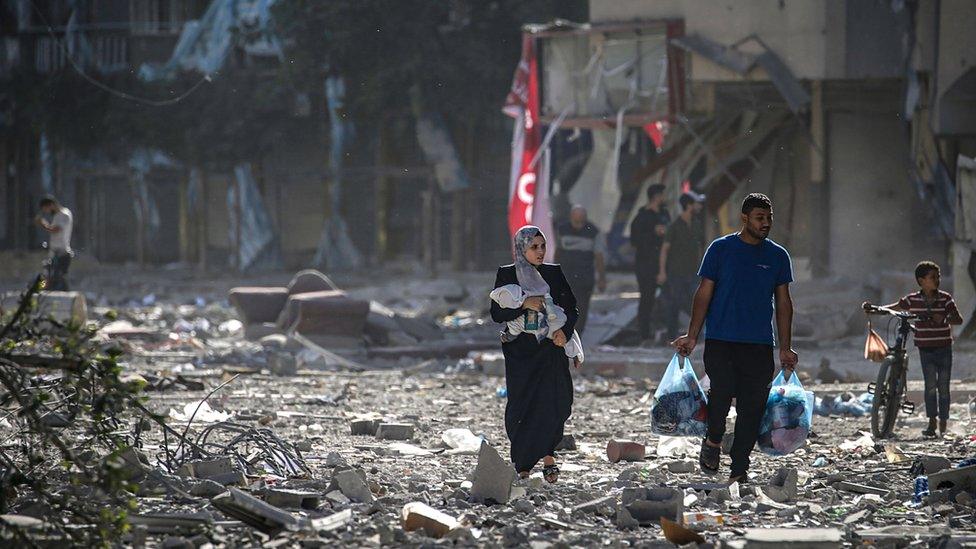
Gazan journalists document the suffering in Gaza that they too are often part of
Many of the journalists I know who work in war zones feel a deep helplessness as human beings faced with relentless human suffering. How do you help when there are so many to be helped? How do you do your work if you are stopping to give food or first aid?
We are not aid workers or medics. But we are human beings.
This is magnified for Mahmoud by his local ties. Foreign correspondents like me have the privilege of getting on a plane and going home. The memories of war might follow but we at least have physical safety as do the people we love.
The Gaza Strip is a very small place - 366 sq km (141 square miles) in total land area. Mahmoud has every chance of finding someone he knows at a war scene.
"I am a journalist and my mission is to deliver what I am seeing," he tells me, "but sometimes I have to stop and sit with these kids, try to give them water, see what they need, try to provide them with what they need."
Watching his raw footage as it arrives on our computers the team I work with are struck by his calm. Never once does he forget that the people he films and interviews are probably facing a camera for the first time in their lives, in the worst imaginable circumstances.
This war is proving to be one of the most dangerous for journalists in recent times. More than 30 have been killed so far. The Committee to Protect Journalists (CPJ) has said those in Gaza are paying an unprecedented toll.
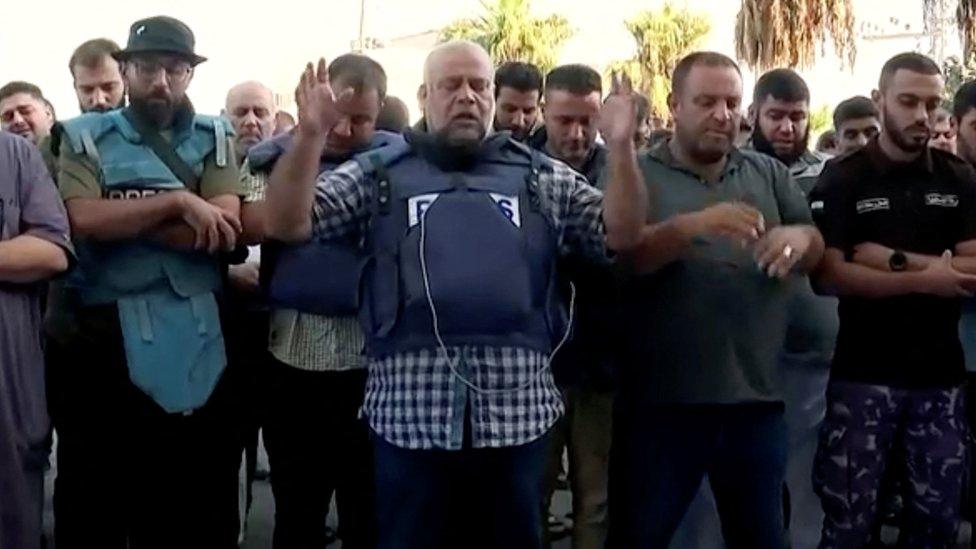
Al Jazeera's Wael Al-Dahdouh at the funeral of his wife and children, killed in Gaza's latest war
"This is a deadly time for journalists in Gaza," says Sherif Mansour, the Middle East expert of the CPJ.
"We have seen more journalists killed in the last close to three weeks than have been killed over 21 years of covering this conflict. A lot of journalists have lost colleagues, family homes, and they were forced to flee where there is no safe haven or exit."
In a close-knit community of journalists in places like Gaza it is inevitable that the loss of colleagues reverberates intimately.
Yara Eid is a Palestinian journalist who grew up in Gaza. She is now living in Britain and mourning her friend Ibrahim Lafi who was killed at the beginning of the war.
"I lost my best friend Ibrahim. He was a Palestinian journalist, but he wasn't just a journalist. He was 21 years old. He was a brother. He was a best friend. He was a dreamer," she says.
"He was a photographer, and he loved life very much. He was the person that smiled the most. I've never seen Ibrahim not smiling in my life. He had the biggest smile whenever I saw him.
"He was the most supportive friend I've ever had. He really had many dreams and he really wanted to be a photographer that chose to show the whole world the beauty of Gaza."
Journalists go to work in Gaza knowing that not only they but their families are under threat. The Al Jazeera bureau chief, Wael al-Dahdaouh, lost his wife, son, daughter and infant grandson in an air strike.
A day later he went back to work saying it was his duty. To those of us watching events from Jerusalem, that dedication is nothing short of extraordinary.
With additional reporting from Haneen Abdeen, Alice Doyard, Morgan Gisholt Minard and John Landy in Jerusalem

More on Israel-Gaza war
Follow live: Latest updates
Explained: What is happening in Israel and Gaza, and why now?
History behind the story: The Israel-Palestinian conflict

- Published28 October 2023
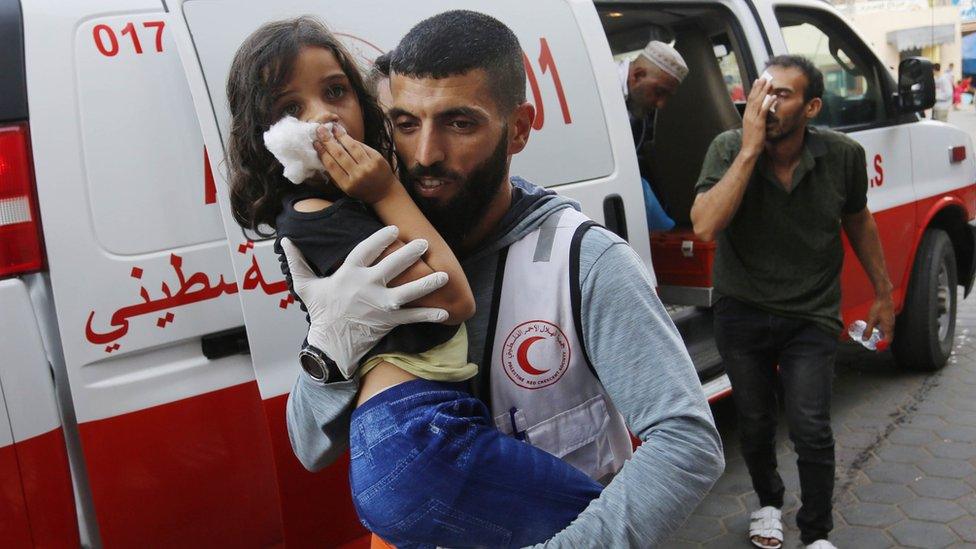
- Published27 February
